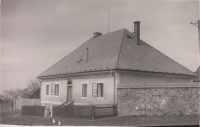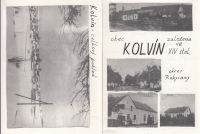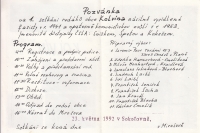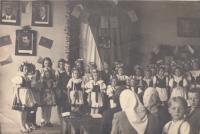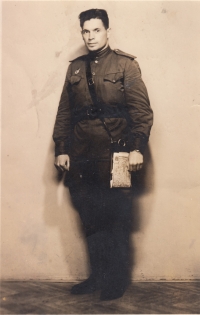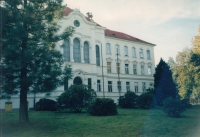Her father refused to join the Communist Party and they were sent to the Sudetenland. They eventually found a home here
Download image
Jarmila Gajová, née Müllerová, was born on 17 September 1937. From childhood she grew up in the now vanished villages in the Brdy Highlands, where her father worked as an administrator of military forests. During World War II, the family supported the uncle who was imprisoned by the Nazis in concentration camps. Her father also helped Soviet partisans towards the end of the war. However, after the war, he was suspected of collaborating with the Nazis with whom he had come into contact professionally, but his brother-in-law who had been in prison interceded on his behalf. In 1953, the communists moved Oldřich Müller to the newly established military area of Hradiště in the Sudetenland because he did not want to join the Communist Party. From 1956 onwards, the witness worked as a teacher in Kyselka. She married Václav Gaja, who was a civil engineer at the military forests, and they had a daughter together. During the invasion in August 1968, they were escorted from their holiday in Rügen by German police officers to Czechoslovakia. During teachers´ background checks, the witness then refused to sign the approval to the entry of Warsaw Pact troops. The Müller and Gaja families spent a large part of their lives in Velichov in the Charity building, which used to be a hospice for wealthy Germans. She was still living in Velichov in 2023.
